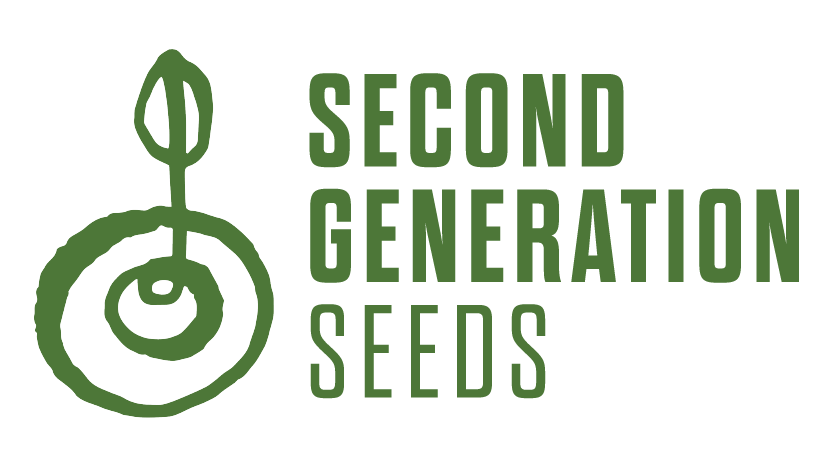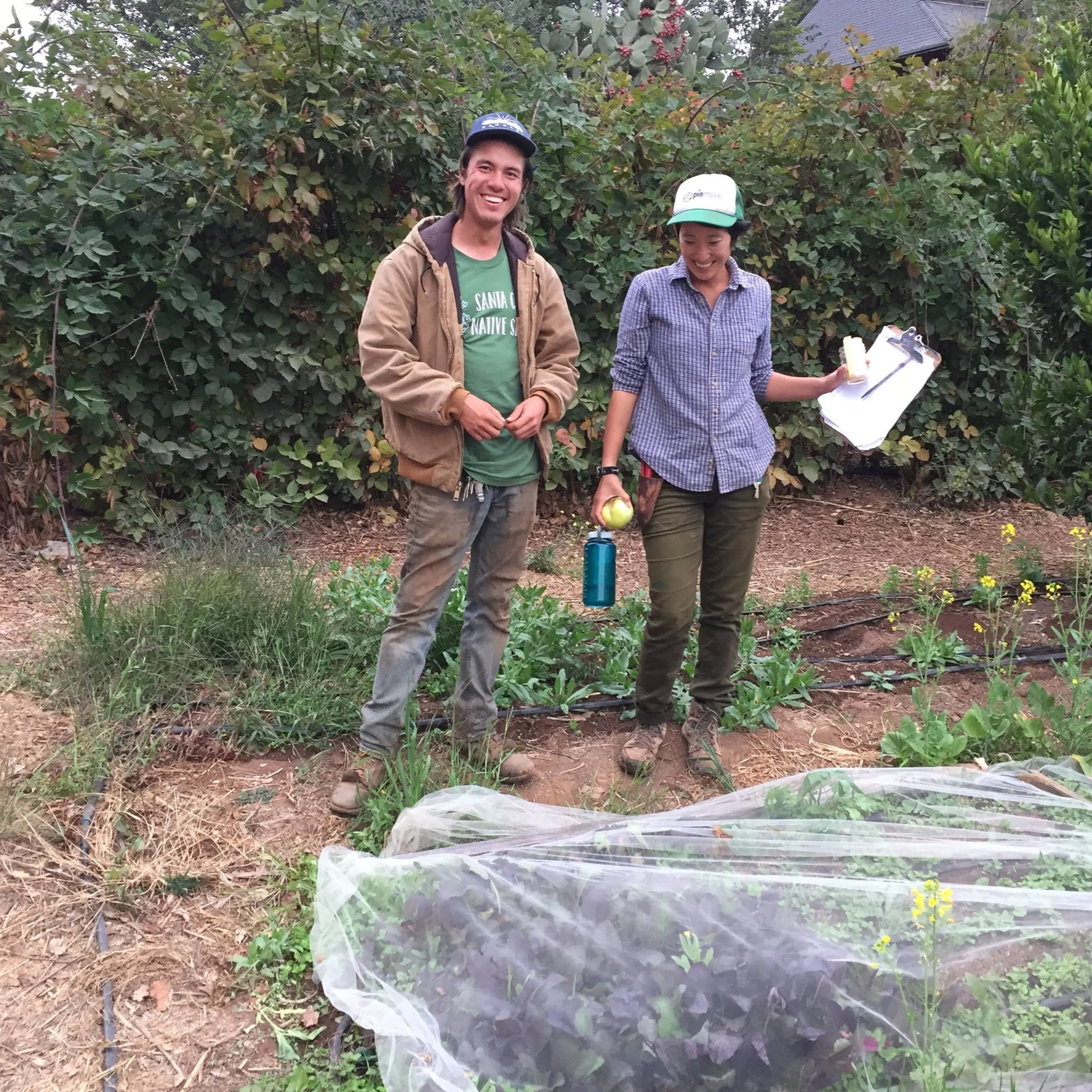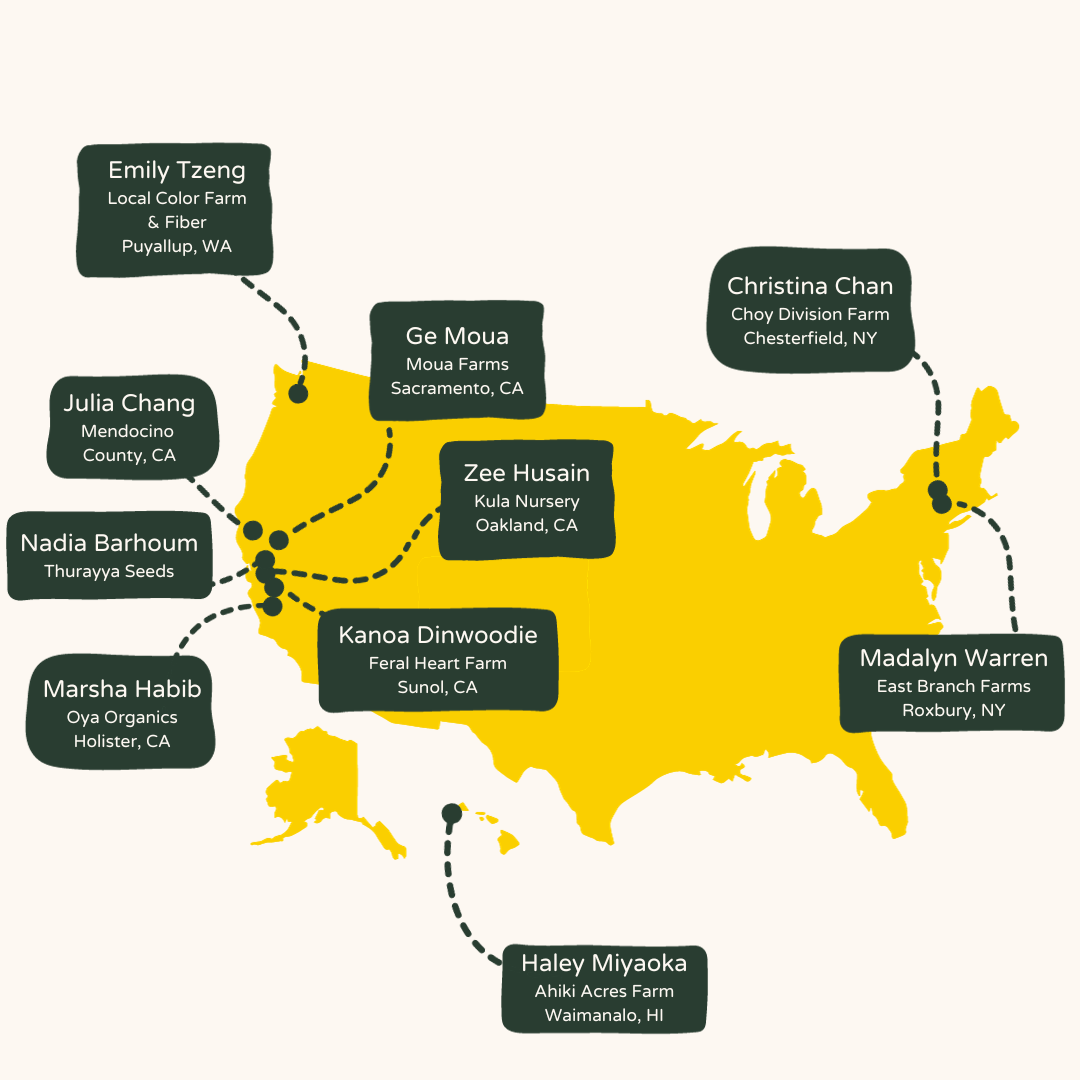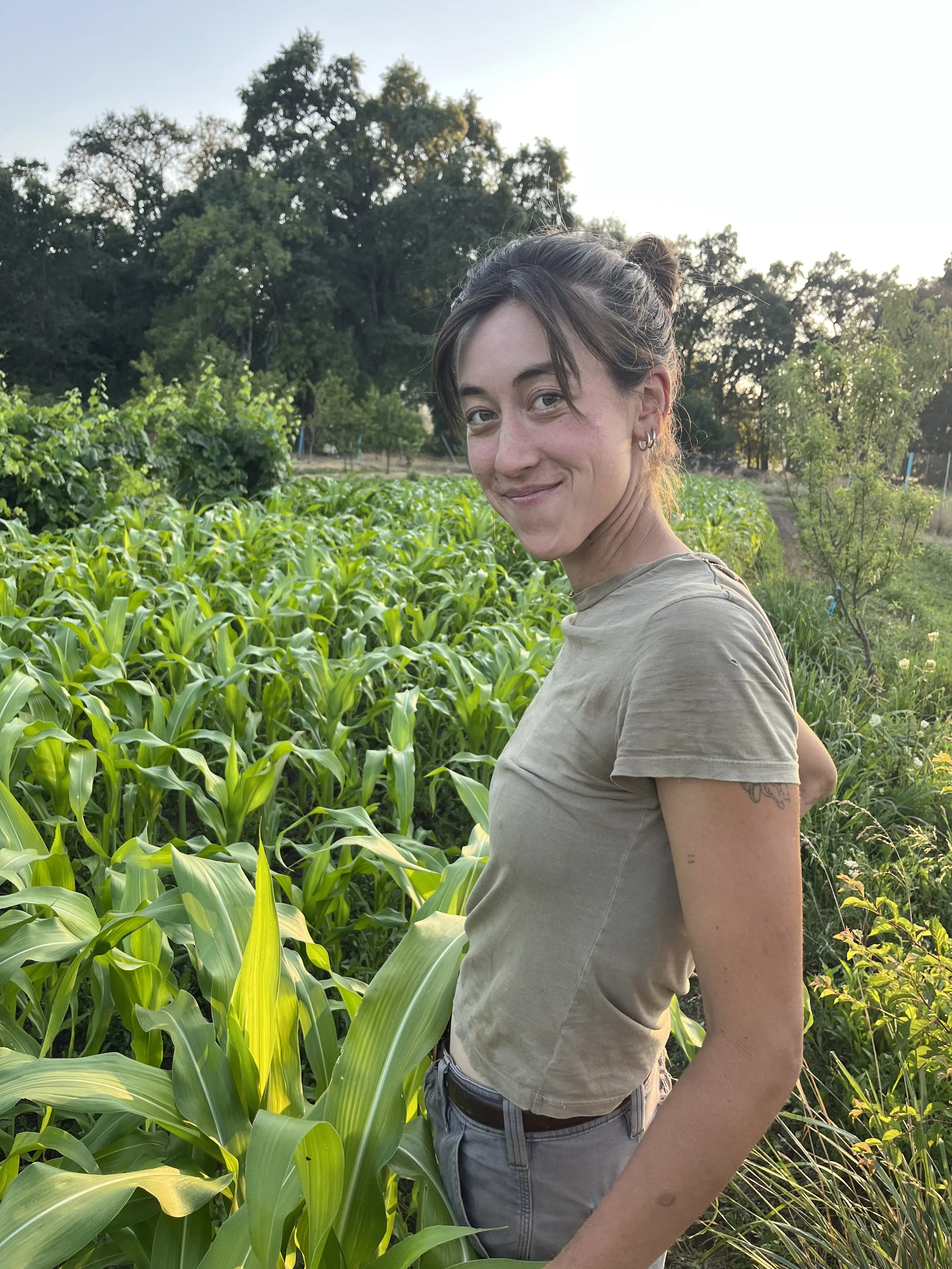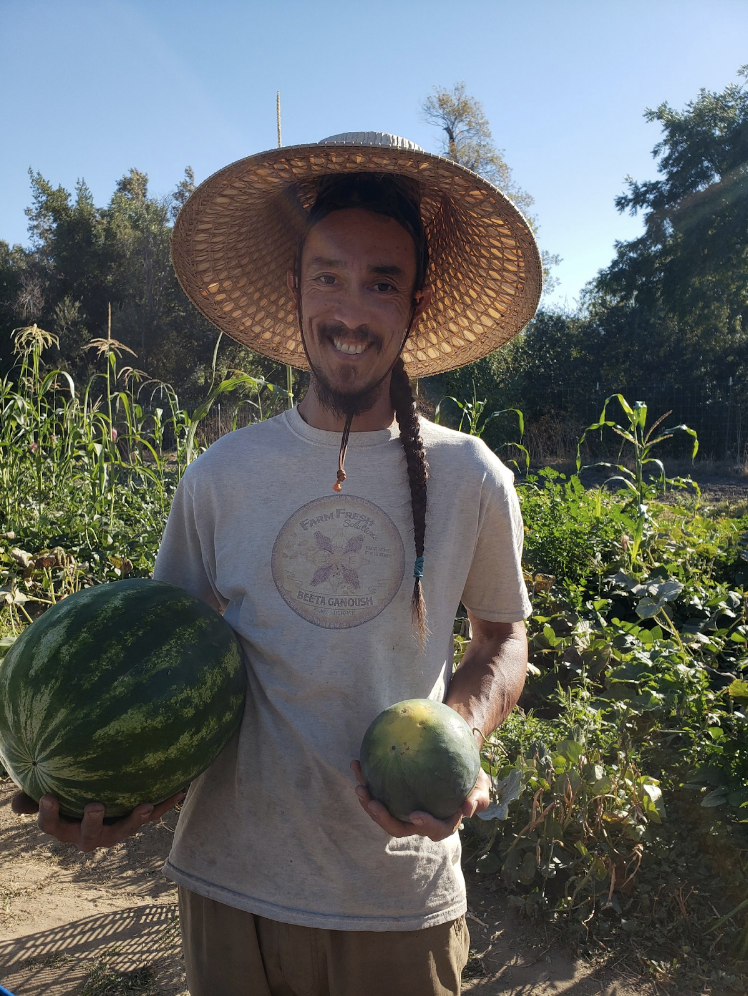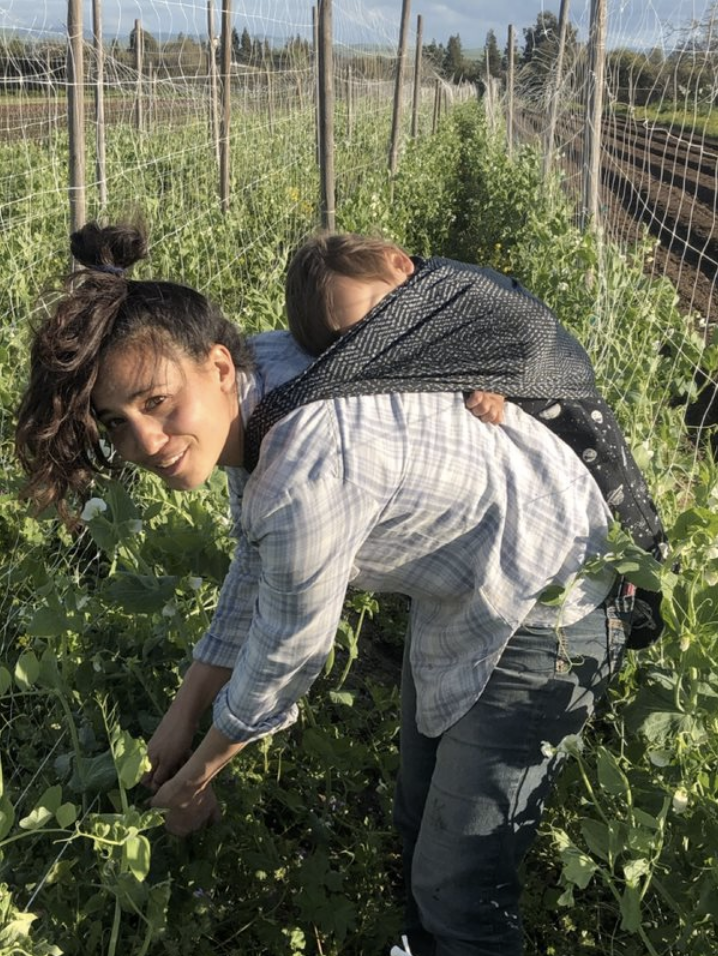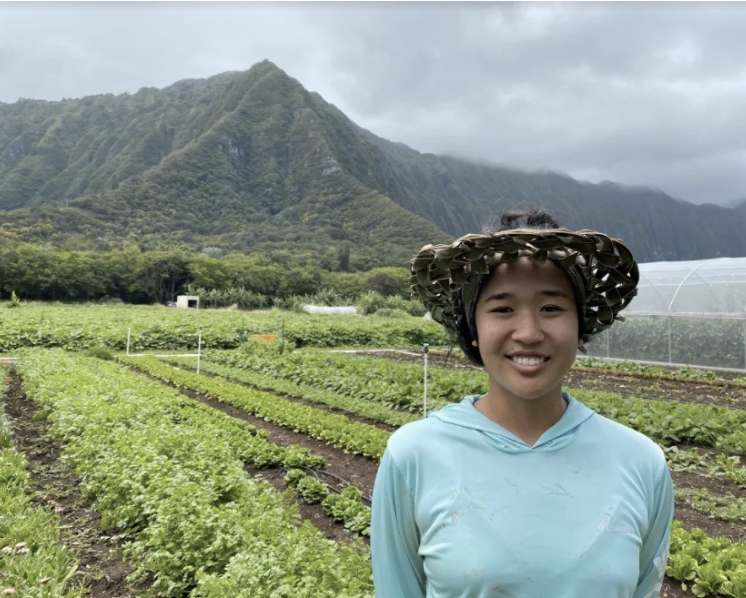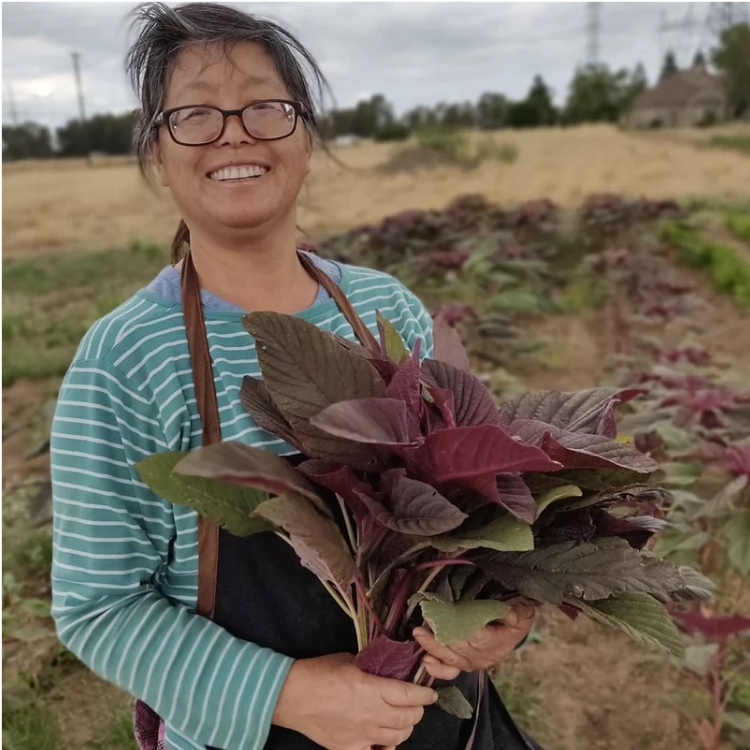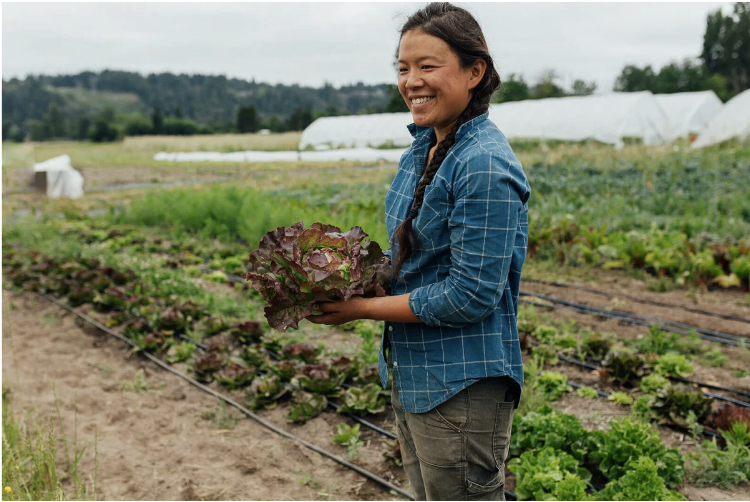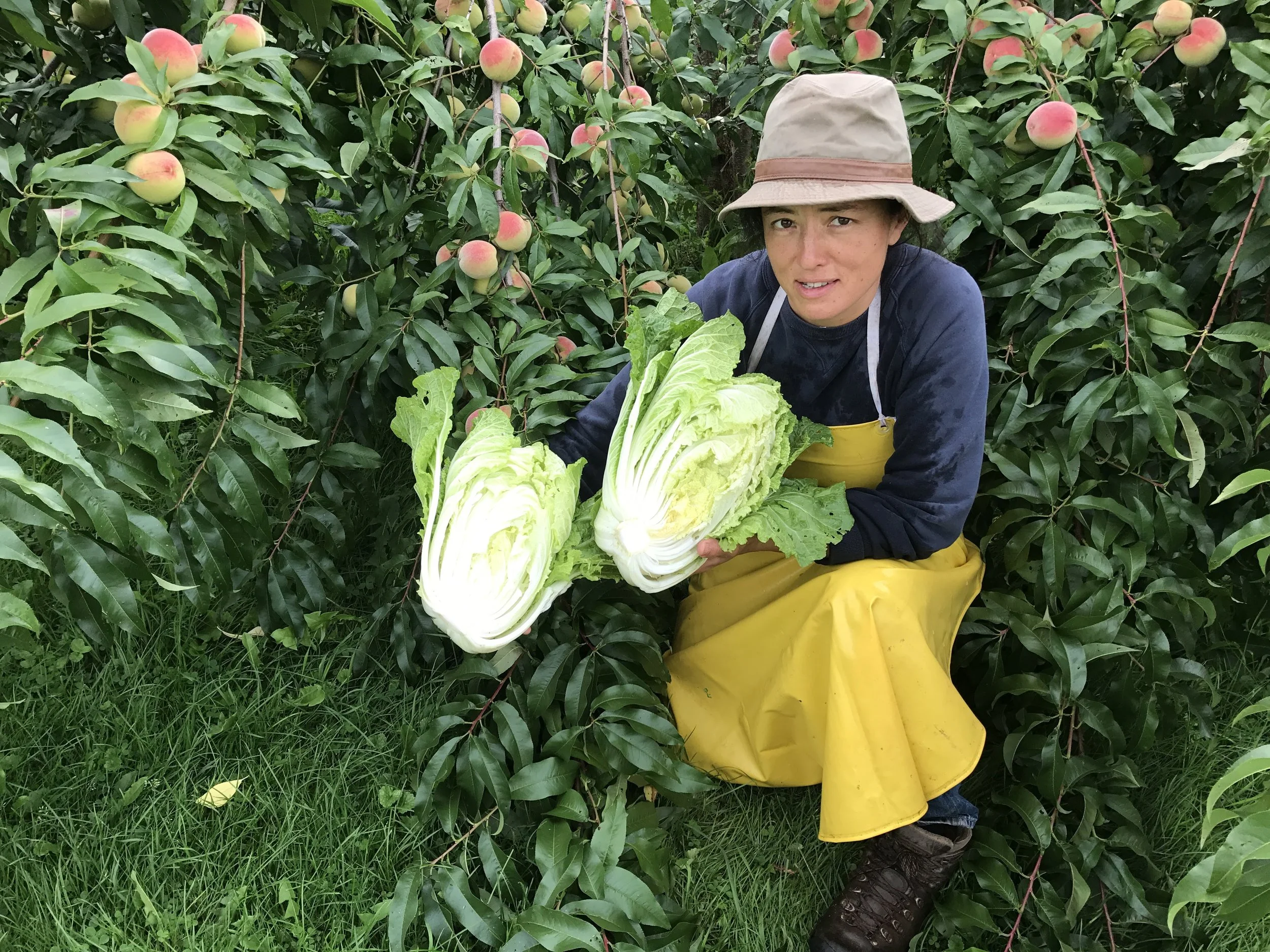Growers’ Collective
We work with growers around the country to share, multiply, and adapt seed to various climates. We are building a decentralized seed network, where preservation means actively growing and continually improving. Our processes work at the intersection of cultural and biological diversity, and our programs and framework reflect community leadership and participation at every stage.
Seed Fellows
Our inaugural cohort of Seed Fellows began in 2023 with a group of 10 growers from across the country.
Second Generation Seeds is supporting each grower in developing a seed breeding project through monthly skill-building workshops, ongoing technical and financial assistance, and community engagement.
Learn more about the Fellows and their projects below!
Nadia Barhoum - Thurayya Seeds
Nadia, who is the founder of a seed-saving and land stewardship initiative called Thurayya. She began farming in 2019, following a desire to be closer to the land in the way her family had been for generations in their small village of Al Malha, Palestine (they were expelled in 1948 by Israeli armed militias). Through Thurayya, she wants to uphold and restore relationships to the land that have been severed by ongoing occupation and dispossession in the SWANA (Southwest Asia and North Africa) region. She is growing out and saving seeds from a variety of vegetables, herbs and other perennials from Palestine and the SWANA region to share with her community in the Bay Area. She hopes these special plants can bring a part of home and their stories back to her community.
Seed Project - Kousa
Nadia is growing kousa, or zucchini/squash, Palestian seeds she received from the Palestine Heirloom Seed Library. This year was Nadia’s first growing these seeds, and she’s hoping to save enough seed to grow again next year to share with others who would like to grow them too. They’re looking for a slender shape, soft skin, tender texture, and pale green color in the fruit and vigorous vegetative growth in the plant.
Christina Chan - Choy Division Farm
Christina is the owner and farmer of Choy Division, which is the culmination of her passions and interests. As a native New Yorker and second-generation Chinese-American, she often felt torn between being American and being Chinese. Sustainably growing Asian vegetables has been a way of connecting the two halves of herself, of finding her way back home, and of reconnecting with her culture and her family.
Seed Project - Ping Tung Eggplant
Christina is working to commercialize ping tung egpplant seeds over the next few years. Ping tung is a beautiful lilac Taiwanese eggplant with tender silky flesh that has no bitterness and the most delicate skin. The original plan was to select for color and vigor, but they’ve had an extremely difficult disease year with plants battling both verticilium wilt and anthracnose. So, now they’ll be selecting for the plants that are most resistant to both soil borne pathogens.
Julia Chang
Julia (she/any) farms in Mendocino County at a 10-acre seed production farm that specializes in open-pollinated, short season crops adapted for heat tolerance. Julia also co-facilitates the QTBIPOC farmer cohort of Cultivemos. In her life and work she hopes to integrate multiple ways of knowing the earth--including modern scientific, embodied, and ancestral--to support movements for food/land/seed sovereignty.
Seed Project - Gailan
Julia is working with several gailan varieties to determine which ones demonstrate more heat tolerance and may be more adaptable to rapidly changing climate conditions.
Kanoa Dinwoodie - Feral Heart Farm
Kanoa has been farming since 2004, getting his start on a ranch in coastal California just south of Half Moon Bay. There he learned how to raise dairy goats and laying hens, prune, graft and propagate fruit trees, and cultivate a wide variety of annual and perennial vegetables and herbs in both garden and field settings. He learned how to make good compost, which was the foundation for his productive, no-till, terraced garden. Seed saving became a passion of his, which he sees as integral to any farm's sustainability. He loves to help make the land laugh and sing and create a productive and healing environment for all creatures great and small.
Seed Project - Luffa
This year, Kanoa is continuing to grow luffa and is selecting for longer fruits.
Marsha Habib - Oya Organics
Marsha caught the farming bug as a kid, visiting her mom’s side of the family in Okayama, Japan where they still grow rice and a home vegetable garden. About 10 years ago, she started Oya Organics on an acre of sub-leased land in Hollister, CA, with a base of agroecological principals, direct to consumer marketing plans, and a lack of capital and kids. Over the past years the farm has grown to 20 acres, and they‘ve been navigating market pressures to grow uniform products with longer shelf life, and production pressure to be economically viable. Despite this reality, she can’t stop planting colorful and flavorful culturally relevant herbs, peppers, tomatillos, eggplants, etc. Currently she’s juggling farming with raising kids, and is excited for the opportunity to deepen their focus in seed saving.
Seed Project - Shishito Peppers
Marsha has grown Shishito peppers for the past few seasons, sourcing both open-pollinated and hybrid seed from different seed dealers. Their original plan was to grow out some open pollinated varieties and select for plant vigor, fruit texture, uniformity and taste. But our homegrown open-pollinated transplants got off to a rough start due to a flood that swept through their farm in March. So they’re shifting to also save seed from two hybrids and will venture into de-hybridizing, stabilizing and introducing the OP over several years.
Zee Lilani - Kula Nursery
Zee is the founder of Kula Nursery, a grassroots urban nursery within and for BIPOC communities to increase food sovereignty through garden education and culturally relevant plant starts. Zee is deeply committed to growing and stewarding culturally important foods, medicines, and herbs native to South Asia and providing them back to her community via her nursery in Oakland, CA.
Seed Project - Desi Tomatoes
This year, Zee grew out around 200 desi tomato plants which they’ll be selecting for flavor, texture and appearance. Some plants exhibit more ribbing which feels like a nice feature to select for. Overtime they’re hoping to develop a sour, acidic, cooking tomato that will lend well to typical South Asian tomato-based dishes like rasam and Chana masala.
Hailey Miyaoka - Ahiki Acres
While earning a degree in chemical engineering in upstate New York, Haley never imagined coming home after graduation to become a farmer. Since high school, her passion has always been centered around creating a more sustainable world and she had her mind set on working on the mainland or even abroad. But after learning more about the significance of food access and nutrition, her desire to grow food emerged. Reflecting on where she could make the biggest impact, she chose to return home to Oʻahu, where greater than 80% of food is imported. Her goal is to produce food in Waimānalo, where she was born and raised and where there is an even higher rate of food insecurity due to a lack of access to reliable, nutritious food.
Seed Project - Hibiscus
Hailey is trialing 5-8 varieties of Hibiscus Sabdariffa, commonly known as Roselle. Typically Roselle flowers around the Fall equinox, triggered by shortening days, and is harvested from Thanksgiving to New Years. Because of its short window of harvest for calyces, Hailey is looking for a day length neutral variety. She is also interested in selecting for resistance to the Chinese Rose Beetle, which goes to town on the foliage.
Ge Moua - Moua Farm
Ge Moua learned to farm from her parents, carrying on a tradition that had been passed down for generations in their small village in the mountains of Laos. She later started a family of her own and together they immigrated to the US, eventually settling in California. The family’s urban existence was a far cry from the fields where Ge grew up, but she reconnected with her heritage when she planted a small backyard garden that provided sustenance for her children. Ge’s initial passion for feeding her family grew into a calling to feed the community around her, and Moua Farm was born. Today, the farm is a family-run operation selling their produce at farmers’ markets from Sacramento to the Bay Area. Committed to being a part of every step from seed to market, Ge appreciates all the learning that is inherent in farming and is eager to share her decades of knowledge with those she feeds. As she says, “Whatever we contribute to our surroundings will be given back to us.” In this way, Ge nourishes her customers as if they are family.
Emily Tzeng - Local Color Farm and Fiber
Emily Tzeng owns and operates Local Color Farm and Fiber with Brian Love where they grow food, flowers, and fiber. They live and farm in the Puyallup River Valley of Washington and grow fresh vegetables, heritage breed lamb, and naturally dyed fibers for your family. They believe that nutrient dense, colorfully diverse, and culturally appropriate foods should be available for everyone and are actively seeking ways to make this possible in their community.
Seed Project - Indigo
Emily is growing Persicaria Tinctoria, Japanese Indigo, for dyeing our line of farm yarn and other textiles. She has been saving indigo seed for nearly a decade for their own farm use with a couple of things in mind. They are aiming for larger leaves (more pigment) and mature seed by early-mid October by the latest. In the past, they have had to bring plants in at first frost to continue to mature, but now they can usually allow the seed to mature outside, freeing up valuable indoor space.
Madalyn Warren - East Branch Farm
Madalyn is the founder of East Branch Farm based in the Northwest Catskills of NY. Madalyn uses organic and biodynamic farming practices to grow vegetables, herbs and medicinal plants for you and promotes vibrant ecosystems for the soil, microbes, birds and beneficial insects. Along with the farm’s CSA, Madalyn and her family also make and ferment kimchi through Kimchi Harvest products and community events.
Seed Project - Soybeans
Madalyn is working on growing out soybean varieties destined for doenjang, a fermented soybean paste.
